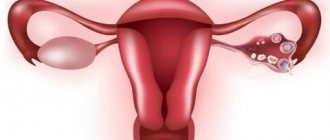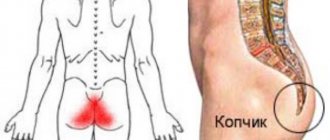Symptoms of infertility in men
The difficulty lies in the fact that external signs of infertility in men are most often not observed. A man may feel normal, not experience any problems in his intimate life, but not have offspring for a long time. Many men find out that they have problems with reproduction only after examination.
If conception does not occur within a year of active sexual life without the use of contraceptives, the couple (both women and men) need to be checked for infertility and undergo a full examination.
1
Diagnosis and treatment of infertility in MedicCity
2 Diagnosis and treatment of infertility in MedicCity
3 Diagnosis and treatment of infertility in MedicCity
The experience of our urologists and andrologists shows: infertility can be treated! At the same time, diagnosing and treating infertility in men is much simpler and cheaper than solving the problem of female infertility. The main thing is to contact a specialist as soon as possible. Advanced forms can lead to chronic inflammatory processes and significantly complicate treatment.
According to the WHO classification, there are 16 causes of male and 22 causes of female infertility.
Advantages of a spermogram
Whatever the cause of male infertility, it is always diagnosed using a spermogram. This analysis is simple, fast and efficient. That is why, when examining an infertile couple, it is prescribed first. A man only needs to provide ejaculate for testing. Women have to undergo laparoscopy, hysteroscopy and other equally painful and hazardous examinations.
According to the experience of doctors, men suffer from infertility just as often as women. However, for moral or other reasons, women much more often blame themselves for it, being afraid to hint to their spouse about the need to undergo a spermogram. A man must remember that low fertility is not an indicator of his weakness or low potency. Often, high seminal fluid fertility, on the contrary, is accompanied by weak potency. Also, often in the sperm of a man with high potency there are no sperm at all. Men in this category are the most difficult to get to undergo a spermogram, especially if they are relatively unmarried. A woman should be more persistent, because this is the only way to conduct a thorough study, identify the cause of marital infertility and draw up a treatment plan.
Approximately 30% of married couples are unable to conceive a child at the same time due to male and female infertility. In severe forms of the disease, it is not necessary to examine the woman, because the couple will be able to conceive a child only through in vitro fertilization (IVF/ICSI).
Types of male infertility
There are several types of male infertility:
- secretory infertility;
- obstructive infertility;
- immunological infertility.
Secretory form of male infertility
With this form of the disease, the testicles do not produce enough sperm, or there are defects in the structure of the sperm or their motility is impaired.
Testicular dysfunction can cause the following diseases in men:
- dilatation of the veins of the spermatic cord (varicocele, occurs in every fourth case);
- cryptorchidism (anomalies in which the testicles are located outside the scrotum);
- hydrocele;
- malignant testicular tumor;
- mumps (mumps).
Obstructive form of male infertility
With this disease, the movement of sperm through the seminal canals becomes difficult or impossible as a result of an obstacle in the form of a tumor, cyst or postoperative scar.
Obstructive infertility is caused by diseases such as:
- inflammation of the testicles;
- obstruction (obstruction) of the seminiferous tubules;
- absence of epididymis or vas deferens from birth;
- prostatitis;
- erectile disfunction;
- surgery involving ligation or removal of part of the seminal ducts.
Immunological infertility
This form is quite rare. In such cases, the man's immune system produces antibodies that kill sperm, making it impossible to conceive.
Sometimes the reason lies in the immunological incompatibility of partners (in this case, often both a man and a woman have children from previous marriages).
Factors provoking the disease
Male fertility can be affected by:
- prolonged exposure to harmful chemical compounds (industrial chemicals, heavy metals);
- contact with radiation;
- frequent overheating of the scrotum (visiting saunas, baths, taking a hot bath, wearing excessively warm and tight underwear).
Other possible predisposing factors may include:
- maintaining a passive lifestyle without physical activity;
- excess weight combined with sedentary and sedentary work;
- addiction to alcohol and nicotine;
- drug addiction;
- psycho-emotional shocks;
- hard physical labor;
- uncontrolled use of medications that can affect the functioning of the reproductive system (hormonal and psychotropic drugs);
- abuse of drugs to accelerate muscle growth;
- long-term use of medications, for example, during chemotherapy, treatment of peptic ulcers, fungal infections;
- various mutations.
It has been proven that the risk of reproductive dysfunction in men is higher if their direct male relatives have encountered a similar problem.
Causes of male infertility
The most well-known causes of infertility in men:
External causes of infertility that impair sperm quality:
- smoking, alcohol abuse, drug addiction;
- violation of thermoregulation of the testicles (overheating due to incorrectly selected underwear);
- blows and injuries in the perineal area;
- taking certain medications, undergoing chemotherapy, etc.
Diseases and disorders in the body:
- hormonal dysfunctions (hormonal infertility), in which testosterone production is reduced;
- inflammatory diseases of the genitourinary organs (urethritis, prostatitis, etc.)
- sexually transmitted diseases (chlamydia, syphilis, etc.).
1 Diagnosis of male infertility
2 Diagnosis of male infertility
3 Diagnosis of male infertility
STIs, analysis for sexually transmitted infections, sexually transmitted diseases, sexually transmitted infections
It is necessary to conduct research for the presence of infectious diseases STIs
(trichomoniasis, trichomoniasis, gardnerellosis, chlamydia, ureaplasmosis, mycoplasmosis, cytomegalovirus infection, human papillomavirus HPV - different types, herpes simplex virus, HSV1, HSV2). Polymerase chain reaction , PCR (scraping), Trichomonas vaginalis PCR (scraping), Mycoplasma genitalium PCR (scraping), Mycoplasma hominis PCR (scraping), Ureaplasma urealyticum PCR (scraping), Nesseria gonorrhoeae (scraping), Gardnerella vaginalis PCR ( scraping), PCR Candida albicans (scraping), PCR human papillomavirus HPV oncogenic types, PCR herpes simplex virus HSV1, HSV2. Detection of pathogens such as chlamydia trachomatis, trichomonas vaginalis, mycoplasma hominis, mycoplasma genitalium, ureaplasma urealyticum, gonococcus (neisseria gonorrhea), gardnerella vaginalis, candida albicans.
Diagnosis of infertility in men
It is no secret that many men do not want to be examined, believing that if they do not have problems with potency, then there cannot be problems with reproducing offspring. However, a man’s reproductive abilities are determined primarily by sperm quality indicators (the number of sperm capable of fertilizing an egg). In addition, the cause of infertility can be hidden (without obvious symptoms) ongoing infectious diseases of the genitourinary system. That is why it is so important to conduct an examination for infertility as early as possible and, having identified the cause, begin infertility treatment.
Methods for diagnosing male infertility
Our diagnostic capabilities include the full range of laboratory tests - diagnosis of infections using serological and molecular biological methods, biochemical, bacteriological, general clinical, hemostasiological, cytological and immunological research methods.
Spermogram
Spermogram is an analysis for infertility, showing the number of sperm in a given volume of semen, their structure, viability and motility. Deviations from the norm can lead to male infertility.
Types of violations:
- oligospermia - insufficient sperm count (less than 30 million per 2-5 ml of sperm);
- asthenospermia - insufficient sperm motility;
- terospermia - disturbances in the very structure of spermatozoa;
- Azoospermia - complete absence of sperm.
Sperm culture
This test for infertility in men is done if the spermogram shows the presence of infection. Using culture, the type of microorganisms is determined.
The objectivity of the survey results is affected by certain conditions. The material for analysis must arrive for examination within an hour after ejaculation, and it must maintain the temperature of the human body (therefore it is better to collect it in a clinic). Three days before the test, you must abstain from sexual intercourse.
Endocrine studies
Diagnosis of male infertility necessarily includes studies of the male hormonal system (hypothalamus, pituitary gland and testicles). It is especially important to study the pituitary gland, which produces hormones responsible for sperm quality.
Genetic, immunological studies.
Sometimes, to determine the cause of infertility in men, additional diagnostic methods are required.
1 Treatment of male infertility in MedicCity
2 Treatment of male infertility in MedicCity
3 Treatment of male infertility in MedicCity
Urogenital examinations, examination
Urogenital studies , study of the biocenosis of the urogenital tract, microscopic examination of the discharge of the urogenital organs. Urogenital examination, of course, determines urogenital infections and the condition of the urogenital tract . If you have questions related to issues such as urogenital smear, scraping, analysis, culture, massage, screening, urogenital biocenosis, disorders, probe, urogenital candidiasis, chlamydia, ureaplasmosis, trichomoniasis, herpes, mycoplasmosis, biocenosis of the urogenital tract, treatment urogenital infections, analysis for urogenital infections, diagnosis of urogenital infections, study of the biocenosis of the urogenital tract, microscopy, urogenital smear in men, women, ask questions to the doctor on the sarclinic website.











